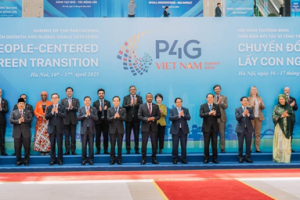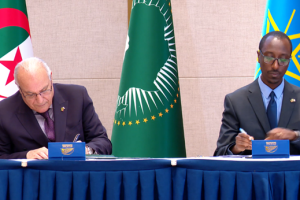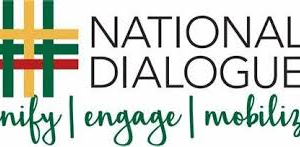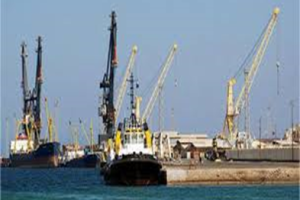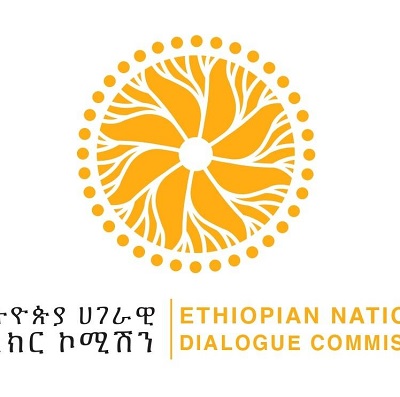
A few days ago the Commissioner of the National Dialogue Commission Professor Mesfin Araya, presented the three-year performance report of the Commission to the House of Peoples Representatives which has the authority to oversight and supervision the Commission’s activities. He said that more or less the Commission had finished gathering the main agendas for future discussions so that some sort of national consensus would be reached once and for all.
The main points of contention would hopefully be ironed out in a civilized, organized, and peaceful manner through discussions. This is an achievement we have seen in many other countries where many disagreements and disputes have been settled through candid and fruitful discussions without the need to resort to any kind of force or violence.
In the past, we have seen instances of commissions settling problems through discussions in countries such as S. Africa, Rwanda, Kenya, and some other countries where major disagreements prevailed and were however settled through protracted and extensive discussions peacefully. The point is if a society is well led by good governors and administrators democratically, they can convene all the stakeholders into a wide and open meeting and discuss freely the stances and ideas of all vested interest groups in an inclusive manner. They then can try to reach a consensus because above all comes the conservation of the integrity and peace of the country and it should not give the impression of destabilization and be exposed to external interference and may then also be vulnerable to further chaos.
It is known how any instance of destabilization or lack of law and order would lead to the loss of confidence on the part of potential investors, and tourists and tarnish the reputation and image of a country. In the case of Ethiopia, we have seen even historically that we have had so many rivals in the Horn of Africa and neighboring countries which have often been looking to grasp the occasion to destabilize us and create an obstacle to the relentless and sustained continuation of our growth and try to march towards prosperity.
We have heard so many times experts say that the Horn of Africa is geopolitically crucial and Ethiopia is part and parcel of this reality, a very important country because of several related factors. It could be because of its specific and crucial location in the vicinity of the intersection of the Horn of Africa and the Red Sea and environs where so many international transactions find their way through that route. It could be because of its size, its past history, its huge growing population, and its potential to be a very big economy, currently seated at 5th in Africa and 1st in the Horn of Africa.
Lately, the country has been making remarkable progress despite several challenges of all sorts including the issue of peace and security as well as economic challenges that are also a product of international factors such as inflation caused by certain instabilities in the world at large, such as the conflict between Russia and Ukraine or even the war in Gaza, Israel and the Middle East at large. One way of settling all these issues is by coming together to a wide round table and discussing our challenges in a manner that includes everyone, even those who are at loggerheads with the government and have chosen the path of going to the bushes to stage a fight against it.
The National Dialogue Commission has repeatedly assured all parties that are not happy with the current political landscape, the establishment, and the system including all those who have opted to resort to what they call ‘armed struggle’ to settle their scores, have been urged and encouraged to come to the discussion or negotiating table and present their views and proposals without any limitations or influences and without risking their freedom or safety. This is because, without the representation of their ideas, the eventual solutions would not be complete.
The National Dialogue Commission has been founded and launched to gather as many talking points as possible and practicable from all corners of the country whereby people would have the opportunity to present their side of the story candidly including those who have been engaged in hostilities with the government.
Some groups of people were reluctant to trust in the establishment of this National Dialogue Commission and doubted its success in carrying out its duties neutrally and with integrity. This was particularly true of certain political parties which do not see eye to eye with the incumbent and others engaged in armed hostilities against it. This was prospected also because of the security issues in certain parts of the country.
Professor Mesfin Araya, the Chief Commissioner has insisted that although this situation has constituted as one of the causes of delay in their efforts of collecting agendas, it has however not discouraged them from trying to go ahead because one of the basic principles of the Commission is to be all-inclusive, not excluding those in the woods. The credibility of the process need not be put at risk just because of the reluctance of certain parts of the population who may not be happy with the incumbent due to their own issues.
The Commission wants to show that it has no prejudices against any group of people and would like everyone feel comfortable to presenting their case to it. The Commission also wants to create a full image of the country from all corners and that every interest is represented at the discussion.
Moreover, the Commission has been soliciting all political parties to take part in the discussion as well as civil society groups, the diaspora, associations of women, youths, and all other groupings. If the dialogue is not comprehensive of all communities, the result would not be owned by all. Besides, if the discussions do not embrace all parts of communities in the country, it would be de-legitimized by the critics who from the very beginning were presenting excuses not to take part in the mission of the National Dialogue Commission alleging that it has been hijacked by forces in the establishment with its neutrality compromised.
Some of them went to the extent of putting certain preconditions such as the resignation of the government before the beginning of its activities. This of course was considered as absurd and rejected. There is no chance of resignation of the government and engaging in such a very difficult operation such as convening thousands of people from all corners of the country in an atmosphere of uncertainty where the peace and stability of the country could fall into serious jeopardy and consequent chaos.
The experiences of other countries do not show such a scenario. If neutrality is not guaranteed by the government and the expenses are not provided by it supported also by development partners from the EU and other countries, there would be little chance of success for such a huge enterprise. It requires massive capital because the task involves the engagement of thousands of people most of whom may be volunteers but there are costs of transportation, accommodation, and hotel costs which need to be covered by the government. Billions of birr have been earmarked for such a huge enterprise.
In presenting its performance report for the last three years until the end of its mandate, the National Dialogue Commission said it has exerted every effort to abide by its words and has been striving to gather as many agendas as possible from all the ten regions and the two city administrations. However, it added that there were remaining some outstanding issues with certain parts of the Amhara Region which were not concluded and it would be appreciated if some more time were to be given to it to complete its mandate.
Hence, it solicited an extension of the duration of the mission. The parliament listened eagerly to the performance report and appreciated the efforts of the National Dialogue Commission in the face of so many adversities to then extend the mandate for another year. But on the same occasion, the Chief Commissioner has once again invited all those who resisted joining it to change their mind and be a part of this unprecedented historical event in the country that could mold the fate of the nation going forward.
It is clear that the country needs relief from ongoing violence here and there caused by those who argue that they are not duly represented in the government. Some forces also insist that the Commission is not representative of all interests in the country and is the long arm of the government which wants to perpetuate its legitimacy to govern. The Commission of course has dismissed these allegations as unfounded as it continues to invite every interest group to express their thoughts freely and contribute to the discussions that eventually complete the picture and no one would feel left out or ignored.
Since the advent of the current reformist government, there have been several activities that were promising including adopting forward-looking policies. There have been several huge challenges that were inherited by it and the work of recovery and healing of the old wounds have not been easy. Ethiopia is a multiethnic, multicultural and multireligious country with a huge youthful population and the issues are very difficult to address without complete unity of the citizens and consensus on what the government is trying to achieve.
That is why the formation of the National Dialogue Commission is also among the major instruments intended to bring about the desired consensus among all nationalities by clearing all outstanding issues and narratives that have been the source of so many disputes and controversies that have often led to outright hostilities and violence.
The idea of sitting together around a table and discussing all sorts of outstanding issues is the only one that is viable and can result in peace and stability so that the country can continue with its trajectory of economic growth. That is why we need to have full confidence in the activities of the National Dialogue Commission and simplify its efforts so that it becomes very fruitful.
BY FITSUM GETACHEW
THE ETHIOPIAN HERALD WEDNESDAY 26 FEBRUARY 2025


